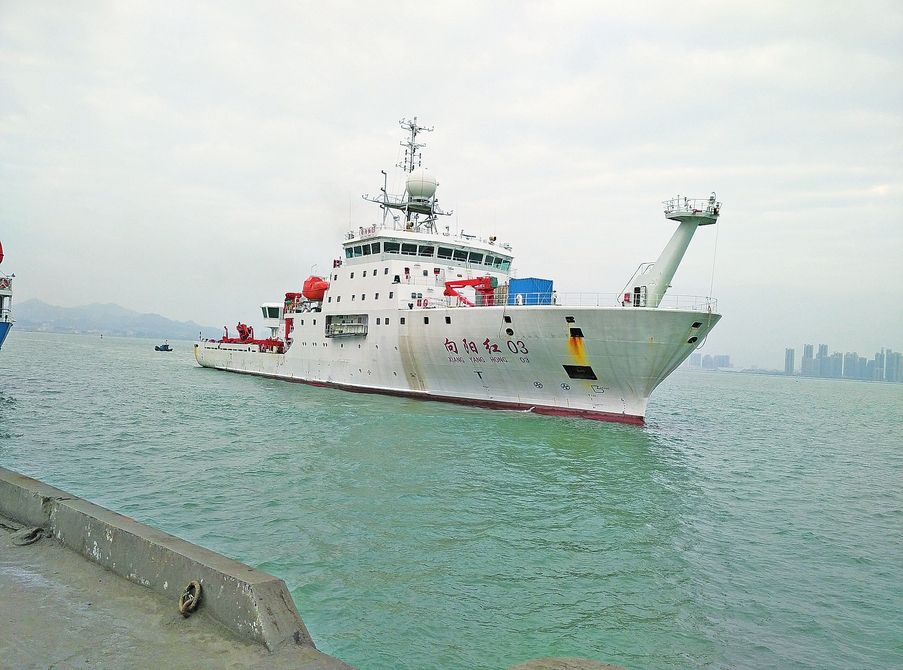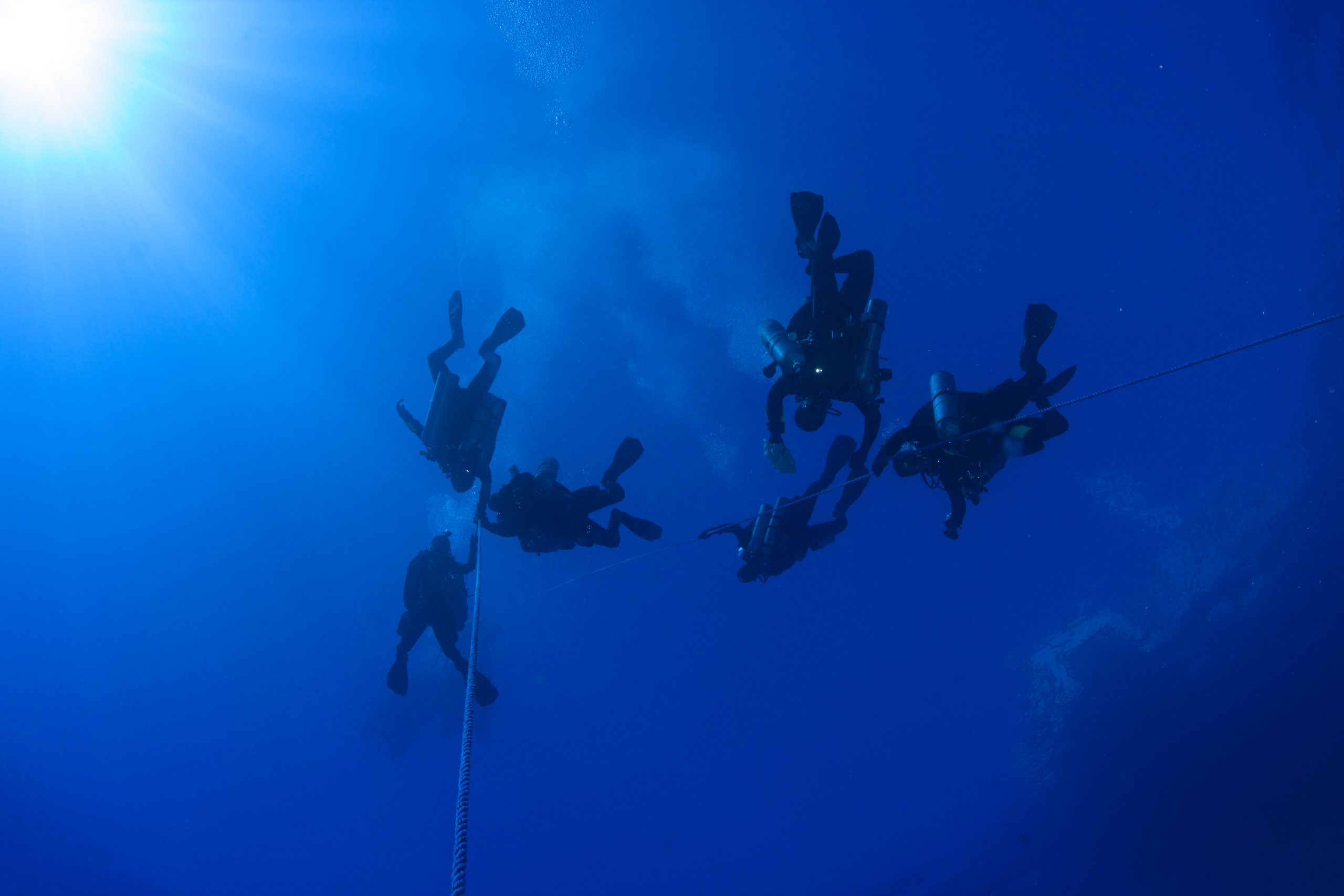
Xiang Yang Hong 03 – back from Benham Rise, now in Xiamen port. Photo from China Ocean News.
Benham Rise, a 13-million-hectare undersea region off the provinces of Isabela and Aurora which the United Nations Commission on the Limits of the Continental Shelf (CLCS) approved in 2009 as part of the Philippine’s extended continental shelf (350 nautical miles from the shores), came into the consciousness of many Filipinos recently with Defense Secretary Delfin Lorenza disclosed early March that Chinese ships had been spotted in the area last year for about three months.
China did not deny it. Foreign Ministry Spokesperson Geng Shuang said their “vessels for marine research did sail across relevant waters to the northeast of Luzon, the Philippines last year, exercising navigation freedoms and the right to innocent passage only, without conducting any other activities or operations.”
Last week, a Chinese newsletter, China Ocean News, carried a news item about what was accomplished by its survey ship, Xiang yang hong 03. It belied what the Foreign Ministry spokesman said that the ship’s activity was limited to innocent passage.
Here’s the English translation of the news item:
“The Ship “Xiang yang hong 03” has successfully achieved its goal when it completed its task.
“On 21 January, the ‘Xiang Yang Hong 03,’ a comprehensive scientific research ship carrying 60 crew members, investigators and samples obtained in the Western Pacific, successfully docked at the Xiamen modern terminal, after the successful completion of its task to conduct sediment and benthic biological investigation in the Western Pacific.
“It is reported that in 26 November 2016, the ship ‘Xiang Yang Hong 03’set sail from Xiamen to implement a national special task – the Western Pacific seabed and benthic organisms survey.After 58 days of voyage and more than 6200 miles of travel to the Western Pacific, it obtained seabed sediment samples in 127 stations, upper sea water suspension sample data in 53 stations and benthic biological samples in 13 stations, the successful completion of the established targets, thus, creating the best record of the task in history. “
The news item showed a picture of “Xiang yang hong 03” docked at Xiamen modern terminal.
I did a quick online research on “benthic organisms survey.” A site connected to the United States Environmental Protection Agency said, “The Benthic Community is made up of organisms that live in and on the bottom of the ocean floor. These organisms are known as benthos. Benthos include worms, clams, crabs, lobsters, sponges, and other tiny organisms that live in the bottom sediments that are a major link in the food chain.
“The benthic community is not easy to investigate because you must first get to the ocean floor to obtain samples.”
***

Old massive corals grow in the bank undisturbed. This
slow-growing coral may have a life span of up to 900 years. Photo by
OCEANA/UPLB.
The issue about the presence of Chinese vessels In Benham Rise, which President Duterte said has his permission, has clarified the misimpression that it is part of Philippine national territory.
AsSenior Associate Justice Antonio T. Carpio said, “Benham Rise is not part of Philippine national territory because we do not have sovereignty over Benham Rise. However, we have ‘sovereign rights’ (less than sovereignty, but exclusive and superior to the rights of other states) over Benham Rise. Under Article 77 of UNCLOS, we have the “sovereign right” to explore and exploit the oil, gas and other mineral resources in Benham Rise, and even the sedentary species (e.g., abalone, clams and oysters.”
Carpio also said, “Other states, like China, have the right to conduct in Benham Rise (1) fishery research because the fish in the ECS belongs to mankind; (2) surveys on water salinity and water currents because the water column in the ECS belongs to mankind; and (3) depth soundings for navigational purposes because there is freedom of navigation in the ECS. If the Chinese vessels were looking for submarine passages and parking spaces, that would be part of freedom of navigation and the Philippines has no reason to complain.”
Former Chief Justice Artemio V. Panganiban, in his column in the Inquirer, made it easy for us to understand the concept of ECS with his example that “we may not own the sidewalk adjacent to our homes but we have rights over it to protect our security, health and wellbeing.”
***
The plan of Malacañang to rename Benham Rise (named after the American geologist, Andrew Benham, who discovered it in 1933, has inspired witty suggestions from social media denizens:
Sandy P. Diez-Sesdoyro suggested “Unli-Rise.”
“Tutal, the Chinese exploit our natural resources and screw us in the ass like everything about the Philippines is a bottomless pit,” Sandy said.
Joey Gatabon said, “Somebody suggested ‘Extra Rise’ as it embodies the most popular Filipino request every meal time.



